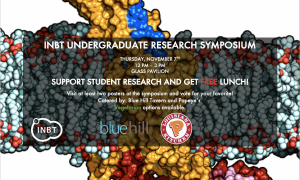
Please join us for our 5th Annual INBT Undergraduate Symposium on November 7th, 2019 from 12:00 pm – 3:00 pm.
Agenda
12:00 pm – 1:00 pm – Poster session 1
1:00 pm – Lunch served
1:30 pm – 2:30 pm – Poster session II
2:30 – 3:00 pm – Award presentation
Attendance
Registration is required for poster presenters. Register your poster and learn the requirements here by October 24th.
There will be four chances to win a poster prize!
Registration is not needed to attend the symposium.
If you have questions, please email inbt.undergraduate@gmail.com.
Want to learn more about the symposium? Read about last years’ symposium in our news section.
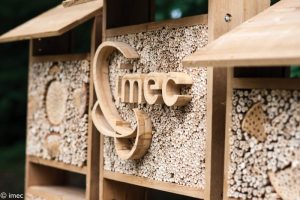
Please join us for an information session on our International Research Experience for Students (IRES) program.
IRES fellows perform research on bioengineering projects at imec in Leuven, Belgium. International cooperation shows students the importance of collaborations in addressing global challenges in science and technology.
Imec is a government research institute working with universities, industry, and governments labs. They specialize in microelectronics and have world-class laboratories and manufacturing capabilities. The program is funded by the National Science Foundation and supports 3-5 Johns Hopkins students to work at imec where they will learn how to design, fabricate, and test a wide range of biomedical devices.
Learn more about the program on our website and student blogs website. This program is open to undergraduate and graduate students.
Refreshments will be served.
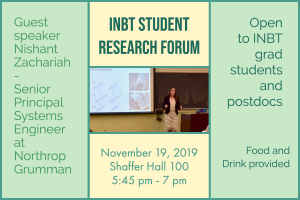
Please join us for the November session of the Student Research Forum. Students interested in presenting can sign up here.
This month’s guest speaker is Nishant Zachariah, PhD – Senior Principal Systems Engineer at Northrop Grumman. He received his MSE in biomedical engineering Johns Hopkins University and his PhD at Georgia Institute of Technology in electrical engineering.
To provide more teamwork opportunities and build bonds among graduate students and postdoctoral fellows, INBT implemented the Student Research Forum. The forum is built upon the collaborative core that INBT was founded on and provides opportunities for students to engage with each other on research topics and other professional aspects of research and training.
Each month during the academic year, the group gathers to hear student presentations on research or a business proposal. The presenters receive feedback from their peer audience on how to refine their research project or proposal. One to two guest speakers from a relevant industry organization is also present to provide feedback to the presenters, but to also discuss other topics with students such as research in industry, a career in industry, and how academia and industry work together. Students can use the time to network with peers they do not normally interact with in the INBT labs. At the end of each semester, those presenters compete in a final competition for a cash prize to use toward their research or proposal.
*The Student Research Forum is for INBT graduate students and postdoctoral fellows only.*
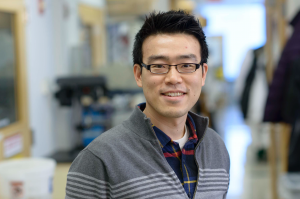
“Engineering Platforms for Investigating Cancer Biomarkers: Exosomes and Metabolism”
Sangmoo Jeong’s research is mainly focused on developing a novel analytical platform, termed hyperpolarized micro-NMR, to study metabolism in clinically relevant models, such as organoids or stem cells. Using the in-house 3D printer and microfluidics, he has also been developing a NMR-compatible micro-bioreactor system to monitor metabolic changes in cancer cells in real time.
Cancer cells change their phenotypes, proliferating in otherwise healthy environments. Jeong has developed sensitive analytic tools to identify cancer biomarkers and to develop diagnostic and therapeutic strategies. Jeong will discuss his two novel engineering platforms which are significantly beneficial for analyzing cancer exosomes and metabolism: iMEX (intergrated Magneto-electrochemical EXosome sensing) and HP micro-NMR (HyperPolarized micro Nuclear Magnetic Resonance sensing). This seminar will also feature a discussion surrounding his independent lab’s interdisciplinary research directions.
The INBT is collecting donations for the Hopkins Food Pantry. The Hopkins Pantry serves to tackle food insecurity at Johns Hopkins by providing students, staff, and faculty with an alternative resource. They accept donations of non-perishable, non-expired food products, and hygiene products.
Food: peanut butter; jelly; granola bars/breakfast bars; nuts and seeds (in sealed packages/ containers); dried fruits; canned pasta, soup, tuna, and vegetables; cereal (large boxes or individual cups); oatmeal; crackers; rice; pasta; pasta sauce; ramen; dried/ canned beans; coffee (instant); boxed meals, ready-to-eat meals.
Toiletries: toilet paper, toothbrush, shampoo, conditioner, body wash/soap, deodorant, feminine
hygiene products
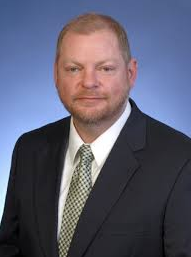
“Addressing the Dual Challenge Through Advanced Separations: From Materials to Process Scale Up”
ExxonMobil has been developing advanced separation concepts focused on some of the highest impact hydrocarbon separation processes to address the challenges of supplying affordable energy while reducing emissions. McCool will discuss the research portfolio of the separations and process chemistry group at ExxonMobil’s Corporate Strategic Research and the processes with potential to dramatically reduce the carbon and physical footprint of critical operations.
Ben McCool is Section Head, Separations and Process Chemistry, ExxonMobil Corporate Strategic Research in Annandale NJ. His research interests include transport in inorganic and polymeric membranes, gas and liquid separations, membrane reactors and process conceptualization
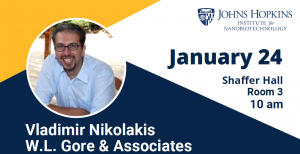
Exploring the Effects of Liquid in the Pore Network of Sorbent Polymer Composites on Transport and Adsorption for the Removal of Hg from Flue Gas
Abstract: Emissions of mercury, a toxic substance, from industrial flue gas stacks are regulated in many countries around the world. Several technologies are being developed to address the decreasing emission limits. W.L. Gore & Associates Inc. has developed an innovative technology, called the GORE™ Mercury Control System (GMCS) [1], for addressing this need. The GMCS is a unique fixed sorbent system that also provides SO2 removal as a co-benefit. It is based on discrete stackable modules comprised of Sorbent Polymer Composite (SPC) materials with an open channel geometry. Hg is chemisorbed from the flue gas and bound into the SPC. On the other hand, SO2 is converted to sulfuric acid filling a fraction of the SPC pores. However, due to the hydrophobic nature of the SPC, the liquid acid is expelled preventing the flooding of the entire pore network with liquid, which would have an adverse effect on Hg capture rates.
A reactor model that describes the transport & reaction steps taking place during Hg capture in GMCS will initially be presented, and will be used to highlight the importance of knowing the fraction of liquid into the SPC tape pores. Characterizing the pore network of the SPC tapes is a challenging task not only because the pore sizes span several orders in magnitude, but also because measurements need to happen at dry and 100% relative humidity conditions. Emphasis will be placed on how we combined a set of complimentary techniques (Hg intrusion, N2 & H2O physisorption, and X-ray computed tomography) to obtain a 3-D reconstruction of the dry and wet SPC pore network and how this reconstruction was analyzed to get information about the porosity and tortuosity of wet and dry SPC tapes. Finally, we will show an example of how we used this information together with the reactor model to quantify the impact of liquid in the SPC on Hg removal rate.
Biography: Vlad Nikolakis is a scientist at W.L. Gore and Associates Inc. since 2015. Before joining Gore, he was a Principal Researcher at the Institute of Chemical Engineering Sciences; Patras; Greece (2002-2012) and the Associate Director of Research at the Catalysis Center for Energy Innovation; Univ. of Delaware (2011-2015). He got his Chemical Engineering Diploma from Aristotle University of Thessaloniki (1995) and his Ph.D. from University of Massachusetts Amherst (2001). His research interests are in the areas of materials development, & characterization coupled with reaction engineering to improve catalytic conversions or separations. He co-authored more than 65 publications in peer-reviewed journals, and he’s a co-inventor in one patent.
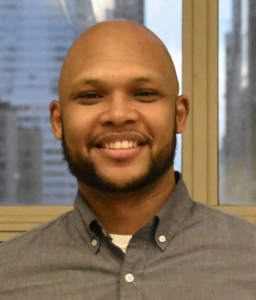
Cellular Phenotypes Get Physical: Lessons From Aging Lymphoma
Abstract: As we age, cells within organs and tissues undergo profound biophysical and biomolecular changes, which significantly influence the rate of functional decline in humans. Working under the premise that age-related dysfunctions at the clinical scale is related to propagated cellular defects, I will present data showing that aging information is encoded within biophysical properties of cells, and can therefore be used as robust biomarkers of aging. These findings are important as it provides a proof-of-concept, and a hypothetical framework that can be used to stratify individuals based on ageing trajectories in both health and disease. In the context of disease, diffuse large b-cell lymphoma is an aggressive and common type of lymphoma, with peak incidence in individuals 65 to 74 years old. Currently, my work focuses on a critical and understudied aspect of lymphoma biology, geared towards understanding the role of the stromal microenvironment in creating a pro-lymphoma niche. By asking questions regarding the biomolecular and biophysical properties of lymphomas, i.e. tumor mechanics, cellular and extracellular matrix (ECM) composition and architecture, and molecular information (i.e. genetic, proteomic), we gain a better understanding of how stromal re-programming and matrix remodeling shape the lymphoma microenvironment. My long term vision for this line of work is to identify exploitable targets within the microenvironment for eventual clinical implementations.
Biography: Jude is currently a postdoctoral associate at Weill Cornell Medicine in the laboratories of Leandro Cerchietti and Ari Melnick, where he studies the role of the stromal microenvironment in creating a pro-lymphoma niche. Prior to his postdoc, Jude received his PhD in Chemical and Biomolecular engineering at Johns Hopkins University with Denis Wirtz, where he developed a cell-based platform to determine the cellular age of healthy individuals based on biophysical properties of their cells. Jude also holds a bachelor of engineering degree in Chemical Engineering from the City College of New York.
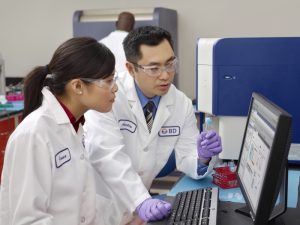
Want to get experience working in an industry setting? Want to receive college credit and a salary? If so, please join us for an information session about our Masters Co-Op program. To broaden the practical training for Master of Science in Engineering (MSE) students in the Whiting School of Engineering, INBT collaborates with major industry partners to offer a Co-Op opportunity to incoming MSE students in the Materials Science and Engineering, Mechanical Engineering and Chemical and Biomolecular Engineering programs.
Go our Masters Co-Op webpage to learn more and then come with questions to the information session. You’ll meet Camille Mathis and Luke Thorstenson who run the program.
Food and beverages will be served.
Join May 14 at 11:00 am for the virtual AccelHERator seminar. Please register to receive webinar access
You are invited to learn how academic investigators can position their science to compel industry stakeholders and develop the relationships with corporate and investor partners that will help bring their discoveries to market.
This session includes a 30-minute “Pitching best practices” seminar and a conversation led by Christy Wyskiel, Executive Director of Johns Hopkins Technology Ventures, with Jill Carroll(JHSOM ’99), Principal at S.R.One, a global biotech venture capital firm founded in 1985 by GlaxoSmithKline (GSK).
About the AccelHERator: A new year-long pilot program to nurture female inventors and applied research, the AccelHERator celebrates the community of Johns Hopkins women whose academic ingenuity will change the world.


